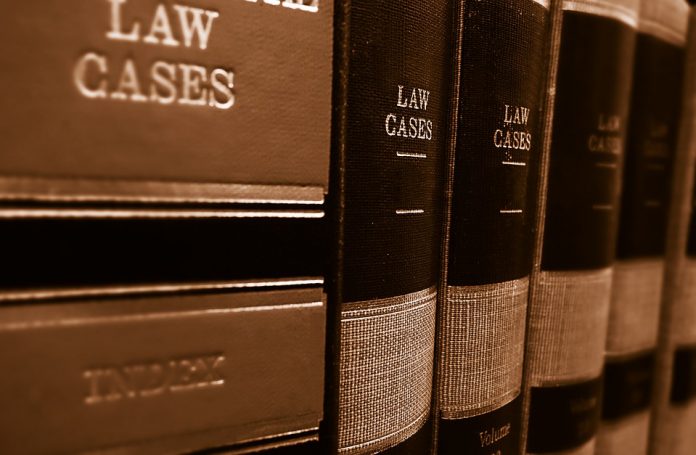This article is written by Riya Jain, from the Institute of Law, Nirma University. The article deals exhaustively with whether misuse of law could invalidate the law in force.
Table of Contents
Introduction
The validity of every law seeks its legality from nature, composition and consequences of the existing law in force through evaluating the proposition of use and misuse. These terms are interrelated and complementary to one another since the use of every law comes with misuse of such law. Merely because power may sometimes be abused, it is no ground for denying the existence of power. In other words, the possibility of abuse of a provision by the authority, the legislation may not be held arbitrary or discriminatory and in violation of Article 14 of the Constitution.
Such incident can be seen in the following aspects like a failure of police officers to lodge FIR is the foremost step of misusing the official duties assigned to them with the entrustment of ensuring maintenance of law and order, misuse of criminal law under Section 498A, 304B and SC/ST (Prevention of Atrocities) Act, 1989 for favouring few at the cost of trapping lower strata of the society. Therefore, it becomes necessary even if the competent authority exercising the power denies the allegation of mala fide intention or ulterior motive or consider relevant material on record for the court to not step back to investigate the truth of the allegation made against authority and simultaneously, providing an appropriate remedy to the aggrieved party due to illegal or misuse of power.
Meaning of law
The term “law” in Article 13 has been given a wide connotation so as to include any ordinance, order, bye-law, rule, regulation, notification, custom or usage having in the territory of India the force of law (Article 13(3) (a)). This means that not only a piece of legislation but any of the things mentioned here can be challenged as infringing Fundamental Right. Accordingly, inter alia the following have been held to be “law” under Art. 13, the validity of which can be tested on the touchstone of Fundamental Rights:
(i) a resolution passed by a State Government;
(ii) a government notification under the Commissions of Inquiry Act setting up a commission of inquiry;
(iii) a notification or an order under a statute;
(iv) an administrative order but administrative instruction is not law within the meaning of Article 13;
(v) a custom or usage;
(vi) bye-laws of a municipal or a statutory body;
(vii) regulations made by a statutory corporation like the Life Insurance Corporation.
The crux of abuse or misuse of law
Abuse means misuse i.e. using his position for something for which it is not intended. That abuse may be used by illegal or corrupt means or otherwise than those means. Misuse of power or misapplications of power or Détournement de Pouvoir (in French Administrative law) are terms to fix the use of power in an illegal fashion. The existence of power needs to be restricted within the ambit which in turn could be reasonably, just and legally be expected to take place and be regulated in accordance with the provision of law.
The purpose of the legislation is to sustain existing law in its letter and spirit. Moreover, the court must interpret the words, language and objective of the statute to promote the public good and diminish misuse or abuse of law.
Budhan Choudhary and others vs. the State of Bihar
The possibility of abuse of a provision by the authority, the legislation may not be held arbitrary or discriminatory and in violation of Article 14 of the Constitution.
A.Thangal Kunju Musaliar v. M Venkatachalam Potti
It is presumed unless contrary proven that the administration of particular law would be done not with evil eye and unequal hands and selection made by the government of the case of a person referred for investigation by the commission would not be discriminatory.
Mehmood Alam Tariq v. the State of Rajasthan
The court held that the validity of the provision must be tested upon operation and efficiency in the generality of cases and not on exceptions which are applicable in rare cases in low possibility. Abuse vitiates any power conferred on competent authority by acting in mala fide and arbitrary exercise of power.
State of Rajasthan vs. Union of India
The court declared that it must be remembered that merely because power may sometimes be abused, it is no ground for denying the existence of power. The wisdom of man has not yet been able to conceive of a Government with power sufficient to answer all its legitimate needs and at the same time incapable of mischief.
In Mafatlal Industries Ltd. and Ors. v. Union of India and Ors.
A Bench of 9 Judges observed that mere possibility of abuse of a provision by those in charge of administering it cannot be a ground for holding a provision procedurally or substantively unreasonable.
Padma Sundara Rago (dead) and Ors. vs. State of T.N. and Ors.
Two principles of construction:
- Casus omissus: a situation omitted from or not provided for by statute or regulation and therefore governed by the common law. In such cases, the court cannot pronounce the judicial interpretation except wherein the case is unambiguous and reasons have the relevancy with the whole of the statute but on an essential requirement of reading down all sections or clause of the statute in connection with aggrieved case/context so that the implied inference put on the said provision has the rational nexus with the whole statute.
- Reading the statute as a whole: It implied reading down the whole or part of the statute for determining the consistency of the inferred provision with the enactment of the statute. The court cannot infer anything into a statutory provision which is plain and unambiguous. The legislative statutes are fundamental of the Parliament and must be constructed upon language, objective and nature of the statute in order to determine the intention of the legislation via words expressed in the statute by the legislative authority itself. The emphasis is not upon the nature and content/context of the legislation but on what has been said or expressed in the statute. While interpreting a provision, the Court only interprets the law and cannot legislate it. If a provision of law is misused and subjected to the abuse of the process of law, it is for the legislature to amend, modify or repeal it, if deemed necessary.
Francis J Mc.Coffey observe that it is the rule of statutory construction that Casus Omissus which means that case omitted from the language of a statute but within the general scope of the statute and which appears to have been omitted due to inadvertence or by overlook cannot be supplied by the court.
It is true that under the guise of judicial interpretation, the court cannot supply casus omissus, but the courts must always try to give effect to the intention of the legislature. Therefore, where the legislature clearly declares its intent in the scheme of a language of the statute it is the duty of the court to give full effect to the same without scanning its wisdom or policy and without crafting, adding or implying anything which is not congenial to or consistent with such express intent of the lawgiver. No court is competent to proceed upon the assumption that the legislature has made a mistake because there is a strong presumption that the legislature does not make mistakes.
The court cannot place reliance on the decision without reasoning as to how the factual situation of this case is similar to the cases being relied on and decided by the competent court. The judicial interpretation is pronounced on particular facts of particular cases.
Sushil Kumar Sharma v. UOI
The objective of Section 498A is to strike a prior notion of dowry death with respect to physical or mental harassment of the victim at the instance of husband maltreatment with his wife within seven years of marriage. However, the misuse of said provision has unleashed shield protection rather than the assassin’s weapon. If the cry of a wolf is made too often as a prank, assistance and protection may not be made available for the actual wolf.
Sometimes misleading representation made in complaint is based on the ulterior motive and not on bona fide in such a situation mere acquittal of the accused does not satisfy the mental and physical trauma inflicted upon him prior to and during the trial of the criminal proceeding alongside leading to loss of reputation and personal liberty of himself and his family members. Merely because provisions of the constitution are intra vires does not give license to unscrupulous persons to release personal vendetta or unleash harassment; also mere possibility of abuse of a provision of law cannot per se invalidate legislation.
Therefore, it became necessary for legislation to find out ways in dealing with a complainant or allegation in an appropriate manner. Till then the court has to deal with care and caution within the existing framework of the law. The investigating authority and court is a watchdog rather than a bloodhound. It becomes their duty to arrive at the truth and that innocent person is not made to suffer on account of malicious and false allegation as there is no straitjacket formula in matters of dowry torture, death and cruelty.
The ground of judicial review in case of abuse or misuse of power
If the act is in excess of the power granted i.e. abuse or misuse of power, the matter is entitled to rectification and proper scrutiny of the court interpretation known as Judicial Review. In such case even if the competent authority exercising the power denies the allegation of mala fide intention or ulterior motive or consider relevant material on record, the court does not step back to investigate the truth of the allegation made against authority and simultaneously, providing an appropriate remedy to the aggrieved party due to illegal or misuse of power.
Misuse of law in refusing to lodge FIR
There is always a reasonable apprehension about refusal or delay in lodging FIR, being the first preliminary report filed by complaint in the nearby police station. It became the verdict of the police is refusing to file an FIR that the present case does not by itself deserve to reach before a court of law. This misconduct by police officials causes an aggravated detrimental effect in the delivery of injustice. Such incidence can be considerably seen in the case of SC/ST (Prevention of Atrocities) Act, 1989 and section 498A of IPC resulted in FIR and closed it. The final report submitted by police officers is either sent to the court or closed due to a mistake of fact or law under Section 173 of Cr.P.C and the complainant remain with the sole option of filing a protest petition against wrongful FIR.
The petitions remain unheard because either the complainant is poor, illiterate or belonging to a low caste does not provide an opportunity to protest against the social and politically rich class of police officials. Just like the dividend cheque of small shareholders which never seems to reach them or reaches very late, the notice may reach very late or be seized en route. This justifies the first line of injustice delivery system causing misuse of the power conferred on police officials by dereliction from official duties in the sense that it denies formulation of the initial stage to attain and secure end of justice to all people irrespective of caste, creed, race, religion, sex, etc.
Misuse of criminal law under Section 498A of IPC and SC/ST ( Prevention of Atrocities) Act, 1989
There is a very low conviction rate in-laws like SC/ST (Prevention of Atrocities) Act, 1989 and insertion of Section 498A in IPC in 1983 to prevent ill-treatment and harassment of married women. The national commission for SC said that “the central government and state government must ensure that the underlying reasons for ending up investigation in the Final Report as the acquittal of the accused is quite high in the states of Andhra Pradesh, Rajasthan, UP, Bihar where maximum cases are registered under PCR and POA Act need to be studied in depth.”
There were seven states in 2012 where more than 40% of cases under the SC/ST Act resulted in either false or some other category of Final Report. There were four states in 2012 were between 40% and 67% cases and eight states where between 20% and 40% of cases under section 498A of IPC resulted in either false or some other category of the final report out of the total case investigated.
Almost all the FIR under Section 498A is legally a mistake of fact and also aggravated category of FIR are false in the case of SC/ST Act. But the mistake of fact does not institute any legal repercussion but false invites under Section 182 and 211 of IPC. The differential treatment for the mistake of fact in section 498A and false case in SC/ST Act shows the cavalier attitude of the police towards victims in the sense that Section 498A is not caste specific but SC/ST Act is caste specific belonging to the lowest strata of the society. Even the relatives and members of the same community are considered interested witnesses as per police construction theory but the law cannot affirm the same. Therefore, police digress from case to case approach of the court i.e. approach each case is unique.
The word “Health” in Section 498A defines physical and mental/psychological violence inflicted upon her months or years after her marriage. It is clearly impossible to say that no psychological violence could have happened as the definition of psychological violence rest with her and the scope of psychological violence is vast.
The Supreme Court has observed that mental cruelty varies from person to person depending on the intensity or sensitivity and degree of courage or endurance to withstand such mental cruelty. However, ulterior motive in way of property issue or material interest override psychological violence which results in misuse of Section 498A. For example, according to one FIR, the complainant, her father and her husband jointly defrauded the complainant’s father in law of his land. The latter lodged complaint in the police station (name changed). The women also filed complaints in retaliation.
Many times, members of SC/ST communities are used as a proxy for the upper caste to settle their personal vendetta with other upper caste people and thereafter to settle their own scores result in misuse of SC/ST Act. Further, SC/ST members are dependent on the upper caste for their livelihood socially, politically and economically which causes SC/ST to fall prey to their trap of exploitation and subjugation. Nearly 10% of FR mentioned that SC/ST members lodged complaints against upper-caste members on the ground of coercion by upper caste members for settling scores among them. No FR, is registered under Section 211 and 182 of IPC should be applied against upper-caste members for instigating the complainant to file the case clearly implied caste biased investigation of police officers.
Misuse of Criminal Law under Section 304B and 498A of IPC
The Dowry Prohibition Act, 1961, and the IPC Sections 304B and 498A also deal with crime related to dowry was enacted with the objective of preventing dowry demand of bride groom and relative before/at/ after the time of marriage. Section 113-A of the Evident Act, 1872 provides that courts may presume the guilt of the husband or relative who had subjected the woman to cruelty in connection with a dowry.
The Act defines dowry defined as any valuable asset, property, valuable security or gift that is given, or agreed to be given, directly, or indirectly, by one party to a marriage to the other party to the marriage but exclude not the only gift given by parents or relative out of love and affection but also dowry or Mehr to person to whom Muslim Personal Law (Shariat) applies. Failure to fulfill the demand results in the death of the women because of continuous coercion physically and mentally or psychological violence faced by the women. The National Crime Record Bureau Report, 1995-2014 shows:
Year Dowry Death Cruelty by husband and his relatives Dowry Prohibition Act
2013 8083 118866 10709
2014 8455 122877 10050
There is a possibility to misuse the legislation by the bride side by registering false complaints against the husband and his relatives. As per data provided by the National Crime Records Bureau, in India, a total number of 99,135 cases in 2011, 1,06,527 cases in 2012 and 1,18,866 cases in 2013 were registered under Section 498A for cruelty by husband or his relatives. After a police investigation, 10,193 in 2011, 10,235 in 2012 and 10,864 cases in 2013 were found to be false or suffering from the mistake of fact or law.
Under the existing rules, if a dowry harassment case is proved wrong or it is proved that the law was misused, a penalty of only Rs 1,000 is imposed. The amendment, however, provides for Rs 15,000 fine. Such misuse of this act cannot be a reasonable justification to eradicate or repeal the Act for the essence and objective is to resort to establishing a society with the possible elimination of the practice of dowry system and thereby causing the death of married women.
The Supreme Court initiated an opinion of misuse of the provision of Section 498A of IPC by referring to “higher proportion of acquittal as evidence”. The apex court also referred to the report of the National Crime Record Bureau to show that the rate of charge sheet in cases under Section 498A IPC is as high as 93.6%, while the conviction rate is only 15% which is the lowest across all heads.
Conclusion
The prevailing discourse is that women, members of SC/ST misuse Section 498A and SC/ST Act respectively but refuse to look at the fact that there is a possibility that men and members of the upper caste can also misuse these laws by using women and SC/ST members as proxies. It was observed that the misuse by itself shall not be ground to denude the provision of its efficacy, keeping in view the larger societal interest.
By relying on NCEB data, the Supreme Court was of the opinion that low conviction rate and acquittals in the cases means they are fake or false. Even if such misuse disturbs the objective to be fulfilled, it becomes necessary for legislation to find out ways in dealing with complainant or allegation in an appropriate manner. Till then the court has to deal with care and caution within the existing framework of law. It can be clearly concluded that misuse of law cannot invalidate the existing law as it is better to be good than worst of all.
References
- https://www.jstor.org/stable/24480844
- https://www.jstor.org/stable/24481211
- https://www.jstor.org/stable/24479736
- https://www.jstor.org/stable/44156653
- https://jowaipolice.gov.in/Laws_and_References/ipl_and_acts/20_Dowry_Prohibition_Act_1961.pdf
Students of Lawsikho courses regularly produce writing assignments and work on practical exercises as a part of their coursework and develop themselves in real-life practical skill.
LawSikho has created a telegram group for exchanging legal knowledge, referrals and various opportunities. You can click on this link and join:
 Serato DJ Crack 2025Serato DJ PRO Crack
Serato DJ Crack 2025Serato DJ PRO Crack











 Allow notifications
Allow notifications


